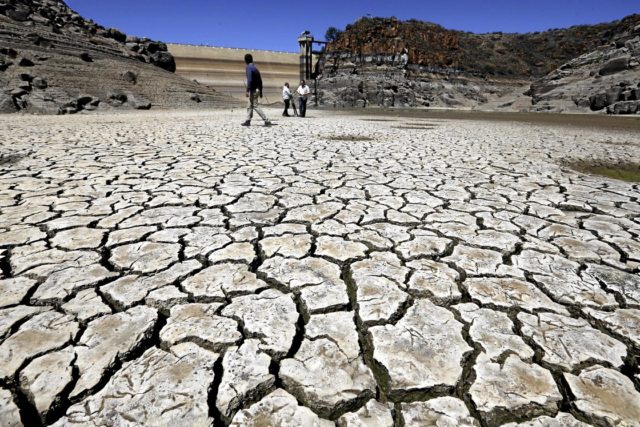The front-page Washington Post headline read “Divided by drought in Cape Town; As the city’s water runs out, the rich drill wells and the poor worry about eating”. But the long Feb. 25, 2018 article missed, if not studiously avoided, key factors. These were highlighted four days earlier in a Wall Street Journal commentary, “Cape Town May Dry Up Because of an Aversion to Israel; The Palestinian Authority accepts the Jewish state’s help on water projects. South Africa refuses it.”
The Post’s correspondent, Kevin Sieff, reported that Cape Town suffers from “a protracted [nearly three years] drought” and “government failure” to provide alternative water sources.
With time running out—tap water “Zero Day” has been forecast to arrive sometime between April and July—“residents are scrambling to find their own private solutions,” The Post reported. “For the wealthy, that means hiring companies to dig boreholes and wells. It means buying truckloads of bottled water, even at inflated prices. It means ordering desalination machines to make groundwater drinkable—or safe enough to fill a swimming pool.
“For the poor, it means waiting to see what the government comes up with, and contemplating whether you can afford to cut back on food to be able to buy water.”
The Wall Street Journal commentary, by Seth M. Siegel, went beyond The Post’s South African haves-versus-have-nots coverage. It pointed out that Israel, in the fifth year of a drought, has “abundant water” for its citizens thanks to world leadership in market pricing, desalination, conservation and recycled wastewater for agriculture. “Israel has trained water technicians in more than 100 countries, and it offered to bring in desalination experts to help South Africa.”
But South Africa’s ruling African National Congress, still in thrall to its Soviet-era alliance with the Palestine Liberation Organization, has refused Israeli offers of assistance. ANC’s anti-Israel antagonism, explained Siegel, “goes back to the 1960s, when current Palestinian Authority President Mahmoud Abbas lived in Moscow [where he wrote his anti-Zionist, Holocaust minimizing doctoral dissertation] with exiled ANC leaders, and [Palestine Liberation Organization leader] Yasser Arafat often visited. Students and leaders of the two movements were supported by the Soviet Union, and they shared revolutionary aspirations.”
Revolutionary ideology apparently trumped interest in revolutionary innovations like those in Israel’s water resource management. So instead, Siegel observed, South Africa has turned to Iran.
Choosing Iran—From Drought to Drought
Good luck with that. Four years ago, The Post reported “Iran is headed for a water shortage of epic proportions, and little is being done to reverse a decades-long trend that has reduced the country’s water supply to crisis levels.”
The Post’s then-Iran bureau chief, Jason Razaian—who would be imprisoned by the ayatollahs for a year and a-half ending in January, 2016—wrote that “disappearing lakes and dried-up rivers are the outward symptoms of Iran’s water shortage, but the root causes are less visible, stemming from the techniques and habits of a more traditional and less mechanized era.”
Rezaian quoted one specialist who said “in less than 50 years, we’ve used all but 30 percent of our groundwater supply, which took a million years to gather, and it’s getting worse and worse due to unsustainable development.”
In his Wall Street Journal column, Siegel—author of Let There Be Water: Israel’s Solution for a Water-Starved World (St. Martin’s Press, 2015)—noted that “unlike Israel, Iran is not known for its water-management expertise. Anger over water shortages was a feature of the recent Iranian protests. …
“As in South Africa, Iran’s water shortages can’t be blamed only on the weather. Water infrastructure projects in Iran are controlled by the [Islamic] Revolutionary Guard Corps, which diverts water to favored ethnic and political groups. In Tehran, largely untreated sewage is discharged into nearby waterways …. Years of regime-encouraged over pumping of groundwater has left agricultural districts without water for crops.”
Meanwhile, the PLO, essentially administering the West Bank as the Palestinian Authority, cooperates with Israel, at least regarding water projects. Despite the drought, Israel supplies the West Bank with more than half the water used for domestic consumption.
Casting the Cape Town drought as a South African rich (frequently white) versus poor (often black) melodrama, The Washington Post failed to provide readers news about the intersection of water management and international politics, of Israeli innovation and the African National Congress’ self-defeating anti-Zionism. The omission was particularly noticeable, given the Wall Street Journal commentary four days before, and The Post’s own coverage of Iran’s water shortages four years earlier.


